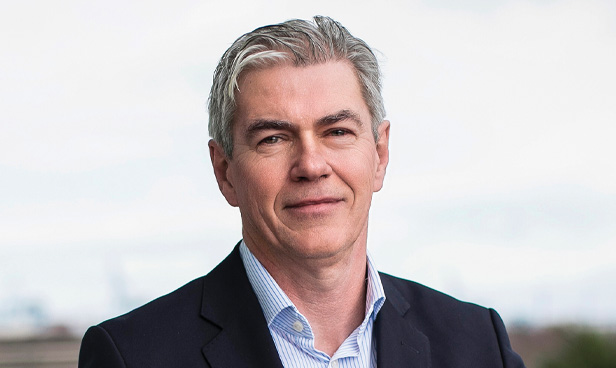
The EU Climate and Energy Framework: Europe’s defining decarbonisation ambition
20th April 2021
Shaping our electricity future
21st April 2021Playing our part in creating a net zero future

As we start to think about what a post COVID-19 recovery should look like, we have a chance to tackle the climate crisis head on, building a sustainable green economy with long-term job opportunities across a wide range of sectors. Creating a net zero future requires the right combination of educating consumers on the benefits, providing innovative product solutions and centrally funded incentives to support change.
As a society, we need to broaden our collective focus to all emissions sources on the net zero journey, especially those that are harder to tackle such as heat and transport. According to the latest SEAI 2020 emissions report heat accounted for 33% of Irish energy related emissions and transport accounted for 40%. As energy sector leaders, we have a unique opportunity to make an impact on climate change, as well as a huge responsibility to do so.
Educating consumers
That’s why, at Bord Gáis Energy we’re on a mission to accelerate our positive impact and bring our customers on this journey with us. Over the past number of years, we’ve been educating them on how to use energy more sustainably. We’ve rolled out home retrofitting services and smart home technologies to reduce consumption (and in turn, heat emissions), partnered with car manufacturers to support the EV rollout and associated charging networks to reduce transport emissions and have started upskilling our dedicated boiler service engineers on newer low carbon heating technologies. We’re also offering an unrivalled suite of end-to-end energy management solutions to our business customers via Centrica Business Solutions that helps them remain in control of their energy and turn their energy footprint into a source of competitive advantage.
Innovative solutions
Up until now, most of the progress we have made in reducing emissions has been based around cleaning up our power system, with minimal impact on individual homes. Householders still receive the same availability of electricity, delivered through the same sockets, as they did in the days of coal. But the next leap forward in tackling heat decarbonisation requires action at the level of the individual consumer and their home. A vision for net zero will affect every home in the country in a way that we have not seen since we electrified the country in the first instance in the 1940s. This is incredibly exciting, transformational and, in many respects, more complex than obtaining our renewable electricity generation targets.
Consumers can create more sustainable homes today by installing our products such as Hive smart thermostat that can save each home up to 0.5 tons of carbon annually with minimal impact. Turning thermostats down by just 1 degree can reduce annual space heating energy consumption by 10% with an equivalent reduction in greenhouse gas emission. Our Hive Active Heating and smart technology products are providing increasingly more insight to customers around energy usage. Added to this, the optimisation opportunity that will come from the nationwide rollout of the smart metering project will only enhance customers awareness of their energy usage. We’ve also been focused on bringing new products and technology from our Centrica Business Solutions unit to our commercial energy customers. These solutions include our Energy Insight products that provides users with real-time visibility of their energy usage, Combined Heat & Power (CHP) — a highly efficient source of onsite energy generation and Demand Side Management (DSM) which is enabling organisations to turn their energy usage into a source of sustainable competitive advantage through flexible, straightforward solutions.
While our support for customers is already making an impact, the biggest challenge we face will be the creation of a new, well-functioning market for low-carbon heating options. We also need to acknowledge the role that natural gas will play as a transition fuel for decades to come. A recent study of the UK market estimated, on a purely economic basis, that even in 2050 a proportion of homes would choose or need to maintain natural gas boilers as their primary heat source. Whilst heat pumps will be a solution for many, they will not be a solution for all, for example because some homes will not be energy efficient enough for heat pumps to be able to keep them warm. Renewable gases such as biomethane and hydrogen will be part of the solution to fully decarbonising heating in our homes.
Funding the transition
In achieving our transition to net zero, we must make sure that our customers are sufficiently engaged, informed and incentivised to decarbonise and that, as an industry we are providing a range of options to meet individual homeowners’ circumstances and budgets. To transition effectively and at lowest cost, we need to prioritise moving off the most carbon intensive sources, and make sure we make the easy changes as well as make progress on the harder ones. There are overlaps between these three things. In practice, it means incentivising customers to convert their homes from oil heating to heat pumps with retrofit measures. For homes on the gas grid, it probably means the speedy roll-out of affordable energy efficiency measures with existing heating systems. With circa 34% of Irish homes on the gas grid, deploying energy efficiency measures within these homes coupled with the introduction of renewable gas (biomethane) would reduce heat emissions significantly. In the long term, “green” or “blue” hydrogen would be a zero-emission heating source. Hybrid heat pumps, which combine a gas boiler with an electric heat pump and makes cost-based decisions on which fuel to use, could also be explored as a solution to reduce emissions, minimise overloading the electricity grid at peak times and provide long term optionality for homes to be heated by renewable gas.
Public policy is of course essential to creating low-carbon heating options and we welcome the announcement of a National Retrofit Programme as part of last November’s programme for Government. This will be key to establishing momentum in improving our housing stock and developing the supply chain in delivery. However, as a recent Department of Public Expenditure report found, the plan to spend €8.7 billion on 500,000 deep retrofits, along with installing 400,000 renewable heat systems in homes, is “one of the most challenging infrastructure projects in the history of the State”.
Key for consumers in transitioning to a low-carbon heating option is to understand the benefits for them as individuals and for society as a whole. But in practice, consumers will need financial incentives in the form of progressively funded grants to swap out their oil heating systems and improve the energy efficiency of their homes. Simply put, if we want consumers to stop buying boilers and swap to a costlier but lower-carbon alternative, the additional capital cost required needs to be funded by an incentive scheme. We need to think realistically about our housing stock and the financial gap that needs to be closed to make the changes worthwhile for consumers. Open dialogue with policy makers needs to continue to ensure that these practicalities are resolved if we are to introduce a well-functioning market for low-carbon heating.
At Bord Gáis Energy we are excited about the role we will play in this transition. Our capability to service in-home needs via our service engineer network, coupled with our investment, innovation and understanding of our customers, ensures we are well placed to play a significant part in addressing the challenge ahead.
Colin Bebbington
Retail Director
Bord Gáis Energy
For more information please visit www.bordgaisenergy.ie
